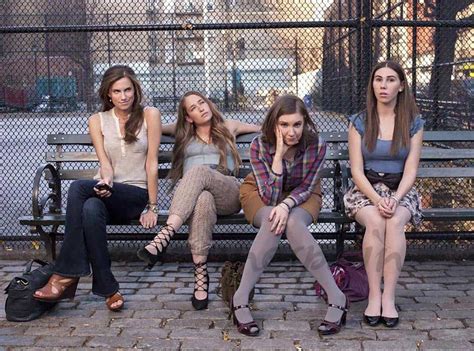
Prince Louis’s spirited behavior during Queen Elizabeth II’s Platinum Jubilee celebrations in 2022, which led to public scolding, has reignited a wave of sympathy for the young royal, prompting discussions about the pressures faced by royal children.
Prince Louis, the youngest child of Prince William and Kate Middleton, captured public attention during the Platinum Jubilee celebrations with a range of expressive reactions, from pulling faces to interacting playfully with his mother. While his antics were initially seen as lighthearted and endearing, some instances led to visible efforts from Kate Middleton to manage his behavior, sparking a debate about the balance between royal decorum and the normal exuberance of a child. The incident has prompted renewed discussions about the challenges faced by royal children as they grow up under constant public scrutiny and the expectations placed upon them from a young age. Royal commentators and child psychologists have weighed in on the issue, offering insights into the pressures of maintaining royal composure while navigating childhood milestones.
The Platinum Jubilee, marking Queen Elizabeth II’s 70th year on the throne, was a momentous occasion filled with pomp, pageantry, and public gatherings. However, it was Prince Louis’s unscripted moments that often stole the show. “He was just being a normal four-year-old,” noted one royal observer, echoing the sentiments of many who felt his behavior was typical for a child his age. Throughout the celebrations, Prince Louis was photographed pulling funny faces, covering his ears during the noisy flypast, and engaging in animated conversations with his family.
These moments, while entertaining to some, also drew attention to the challenges faced by his parents, particularly Kate Middleton, in managing his behavior while adhering to royal protocols. In several instances, Kate was seen gently correcting Prince Louis, prompting a range of reactions from the public. Some praised her for her patience and parenting skills, while others expressed concern that the young prince was being subjected to undue pressure. The debate intensified on social media, with many users expressing sympathy for Prince Louis and questioning the expectations placed upon him.
“It’s hard to imagine what it’s like to grow up in the spotlight like that,” commented one Twitter user, encapsulating the feelings of many who empathized with the young royal. Child psychologists have also weighed in on the matter, noting the importance of allowing children to express themselves and the potential impact of constant public scrutiny on their development. “Children need the freedom to be themselves,” explained Dr. Amanda Edwards, a child psychologist. “Constantly correcting a child in public can lead to anxiety and a sense of being stifled.”
The scrutiny surrounding Prince Louis’s behavior has also highlighted the broader issue of how royal children are raised and the pressures they face. From a young age, they are taught to adhere to strict codes of conduct and are constantly aware of being observed by the public. This can be a significant burden, particularly during childhood when self-expression and exploration are crucial for development. Royal experts have noted that while the royal family has made efforts to modernize its approach to parenting, the inherent constraints of royal life remain a challenge.
“There’s a constant tension between allowing children to be children and preparing them for their future roles,” explained royal historian, Dr. Emily Carter. “It’s a balancing act that the royal family has been grappling with for generations.” The incident has also prompted reflection on the role of the media in shaping public perceptions of the royal family. While the media plays a vital role in reporting on royal events, the constant attention can also exacerbate the pressures faced by royal children. Some critics have argued that the media should exercise greater sensitivity when covering the lives of young royals, recognizing the potential impact of their reporting on their well-being.
The debate surrounding Prince Louis’s Jubilee antics and the subsequent scolding has underscored the complex dynamics of royal life and the challenges of raising children in the public eye. While the royal family is expected to uphold certain standards of decorum, there is also a growing recognition of the importance of allowing royal children to develop and express themselves naturally. As Prince Louis and his siblings continue to grow up in the spotlight, their experiences will undoubtedly shape the future of the monarchy and the public’s perception of the royal family. The incident serves as a reminder of the human element behind the royal facade and the need for empathy and understanding when judging the actions of children, even those born into royalty.
Growing Up Royal: A Life in the Spotlight
The life of a royal child is a unique blend of privilege and pressure, tradition and modernity. From the moment they are born, they are thrust into the public eye, their every move scrutinized and analyzed. This constant attention can be both a blessing and a curse, shaping their development and influencing their future in profound ways. Royal children are raised in a world of opulent palaces, lavish wardrobes, and exclusive educations. They have access to opportunities that most children can only dream of, from traveling the world to meeting influential figures. However, this privileged upbringing comes at a cost.
Royal children are expected to adhere to strict codes of conduct and maintain a sense of decorum at all times. They are taught to speak and act in a certain way, to dress appropriately, and to always be aware of their public image. This can be a significant burden, particularly during childhood when self-expression and exploration are crucial for development. The pressure to conform to royal expectations can also lead to anxiety and a sense of being stifled. Royal children may feel that they are not allowed to be themselves, that they must always put on a show for the public. This can be particularly challenging for children who are naturally shy or introverted.
In addition to the pressure to conform, royal children also face the challenge of growing up in the shadow of their parents and grandparents. They are constantly compared to their predecessors and expected to live up to their example. This can be particularly difficult for children who are not naturally inclined to follow in their family’s footsteps. Some royal children may feel that they are living a life that is not their own, that they are simply fulfilling a role that has been predetermined for them. This can lead to feelings of resentment and a desire to break free from royal expectations.
Despite these challenges, many royal children have thrived in the public eye. They have used their platform to promote worthy causes and to make a positive impact on the world. They have also found ways to express their individuality and to live fulfilling lives outside of their royal duties. The key to success for royal children is to find a balance between tradition and modernity, between conforming to royal expectations and expressing their own unique personalities. They must also have a strong support system, including family, friends, and trusted advisors, who can help them navigate the challenges of royal life.
The Jubilee Antics: A Closer Look
Prince Louis’s behavior during the Platinum Jubilee celebrations was a microcosm of the challenges faced by royal children. His unscripted moments, while entertaining to some, also highlighted the pressures of maintaining royal composure in the public eye. Throughout the celebrations, Prince Louis was photographed pulling funny faces, covering his ears during the noisy flypast, and engaging in animated conversations with his family. These moments were captured by photographers and broadcast around the world, drawing attention to the young prince and his family.
While some praised Prince Louis for his spontaneity and childlike exuberance, others criticized his behavior as disrespectful and inappropriate. Some commentators argued that he should have been better behaved and that his parents should have done more to control him. However, many defended Prince Louis, arguing that he was simply being a normal four-year-old and that it was unfair to expect him to behave like an adult. They pointed out that children often have difficulty sitting still and paying attention for long periods of time, and that it was natural for him to become restless during the celebrations.
The debate surrounding Prince Louis’s behavior highlighted the different expectations that people have of royal children. Some believe that they should be held to a higher standard than other children, while others believe that they should be allowed to be themselves and to make mistakes. The truth is likely somewhere in between. Royal children are expected to adhere to certain standards of decorum, but they are also children and should be allowed to express themselves and to make mistakes. The key is to find a balance between these two extremes.
Parenting in the Public Eye: The Middleton Approach
Kate Middleton’s approach to parenting has been widely praised for its blend of warmth, discipline, and modernity. She has been credited with creating a loving and supportive environment for her children, while also instilling in them a sense of responsibility and respect. Kate’s parenting style is often contrasted with that of previous generations of royals, who were often raised by nannies and sent away to boarding school at a young age. Kate has made it a priority to be actively involved in her children’s lives, from taking them to school to playing with them in the park.
She has also been praised for her ability to balance her royal duties with her responsibilities as a mother. She often brings her children to public engagements, allowing them to experience royal life firsthand. However, she also makes sure to protect them from the intense media scrutiny that can come with being a royal. Kate’s parenting approach is based on the principles of attachment parenting, which emphasizes the importance of building a strong bond between parent and child. She is known for her patience and her ability to connect with her children on an emotional level.
However, even the most skilled parent can face challenges when raising children in the public eye. The constant attention and scrutiny can make it difficult to maintain a sense of normalcy and to protect children from the pressures of royal life. Kate has faced criticism for her handling of Prince Louis’s behavior during the Platinum Jubilee celebrations. Some argued that she should have been more assertive in controlling him, while others defended her, arguing that she was simply trying to be patient and understanding.
The truth is that there is no perfect way to parent in the public eye. Every parent must find their own way to balance their responsibilities as a royal with their responsibilities as a mother or father. Kate Middleton has shown that it is possible to raise children in the public eye with warmth, discipline, and a sense of modernity.
The Role of the Media: A Double-Edged Sword
The media plays a crucial role in shaping public perceptions of the royal family. It is the media that brings the royals into our homes, allowing us to follow their lives and to feel connected to them. However, the media can also be a double-edged sword, as its constant attention can exacerbate the pressures faced by royal children. The media has a responsibility to report on the royal family in a fair and accurate manner. However, it also has a responsibility to protect the privacy and well-being of royal children.
Some critics have argued that the media should exercise greater sensitivity when covering the lives of young royals, recognizing the potential impact of their reporting on their well-being. They argue that the media should avoid publishing photos or stories that could be harmful or embarrassing to royal children. They also argue that the media should respect the privacy of royal children and should not intrude on their personal lives. However, others argue that the media has a right to report on the royal family, including royal children.
They argue that the royal family is a public institution and that the public has a right to know about their lives. They also argue that the media plays a vital role in holding the royal family accountable for their actions. The debate over the role of the media in covering the royal family is complex and multifaceted. There is no easy answer to the question of how the media should balance its responsibility to report on the royal family with its responsibility to protect the privacy and well-being of royal children.
The Future of the Monarchy: A New Generation
Prince Louis and his siblings represent the future of the monarchy. As they grow up in the spotlight, their experiences will undoubtedly shape the public’s perception of the royal family. The way they are raised, the values they are taught, and the causes they champion will all have a significant impact on the future of the monarchy. The royal family has been working to modernize its image and to connect with the public in new ways. Prince William and Kate Middleton have been at the forefront of this effort, using social media and other platforms to engage with the public and to share their experiences.
They have also been praised for their commitment to various causes, including mental health, education, and conservation. As Prince Louis and his siblings grow older, they will be expected to take on more responsibilities and to play a more active role in the royal family. They will need to be prepared to face the challenges of royal life and to uphold the traditions of the monarchy. However, they will also have the opportunity to shape the future of the monarchy and to make a positive impact on the world.
The Platinum Jubilee celebrations were a reminder of the enduring power and relevance of the monarchy. They also highlighted the importance of the royal family’s role in national life. As Prince Louis and his siblings grow up, they will be expected to carry on this legacy and to ensure that the monarchy continues to thrive in the 21st century. Their upbringing, experiences, and choices will define the next chapter of the British monarchy, influencing how it navigates a rapidly changing world while maintaining its traditions and significance. The scrutiny they face, as evidenced by the discussions surrounding Prince Louis’s Jubilee behavior, underscores the ongoing pressures and expectations inherent in royal life.
Frequently Asked Questions (FAQ)
-
What specific behaviors of Prince Louis during the Platinum Jubilee celebrations caused the most discussion?
Prince Louis’s expressive reactions, including pulling faces, covering his ears during the flypast, and engaging in animated conversations with his family, garnered significant attention. His interactions with his mother, Kate Middleton, particularly when she was seen gently correcting him, also sparked widespread discussion. The combination of his playful demeanor and the attempts to manage his behavior in a formal setting fueled the debate about royal decorum versus childhood exuberance.
-
What were the main criticisms leveled against Kate Middleton’s handling of Prince Louis’s behavior?
Some critics argued that Kate Middleton should have been more assertive in controlling Prince Louis’s behavior, suggesting that his actions were disrespectful or inappropriate for a royal event. They felt that a stricter approach would have been more in line with royal expectations and decorum. However, these criticisms were often countered by those who defended her patient and understanding approach.
-
How have child psychologists weighed in on the discussion surrounding Prince Louis’s behavior and the public reaction?
Child psychologists have emphasized the importance of allowing children to express themselves naturally and the potential negative impact of constant public scrutiny on their development. Some experts noted that consistently correcting a child in public can lead to anxiety and a feeling of being stifled. They advocate for a balance between teaching children appropriate behavior and allowing them the freedom to be themselves, especially at a young age. Dr. Amanda Edwards, a child psychologist, expressed that “Children need the freedom to be themselves,” further highlighting the potential harm of excessive public correction.
-
What is the broader context of the pressures faced by royal children growing up in the public eye?
Royal children are raised in a unique environment, balancing privilege with the pressure of constant public scrutiny. From a young age, they are taught to adhere to strict codes of conduct and are aware of being observed. This can create a significant burden, limiting their ability to express themselves freely and develop naturally. Royal experts, like Dr. Emily Carter, point out “There’s a constant tension between allowing children to be children and preparing them for their future roles,” illustrating the ongoing challenge for the royal family.
-
How has the media’s coverage of Prince Louis’s behavior influenced public perception, and what are the ethical considerations involved?
The media’s extensive coverage of Prince Louis’s behavior has played a significant role in shaping public perception, amplifying both positive and negative reactions. While the media serves a vital function in reporting on royal events, its constant attention can also exacerbate the pressures faced by royal children. Ethical considerations arise regarding the extent to which the media should cover the lives of young royals, balancing the public’s interest with the need to protect their privacy and well-being. Some critics argue that the media should exercise greater sensitivity, recognizing the potential impact of their reporting on the development of young royals.









